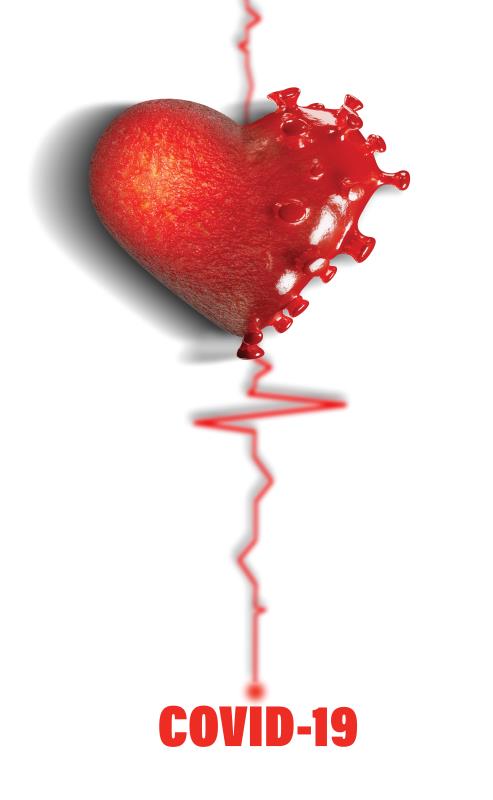High BP may raise risk of dying from COVID-19





Hypertensive patients are twice more likely to die from COVID-19 — particularly if they are not treated with antihypertensive medications — than people without hypertension, a large retrospective study has shown.
After adjusting for confounders such as age, sex, and comorbidities, COVID-19 patients with hypertension still showed a twofold higher risk of death compared with those without hypertension (4.0 percent vs 1.1 percent; adjusted hazard ratio [aHR], 2.12; p=0.013). [Eur Heart J 2020;41:2058-2066]
“It is important that patients with high blood pressure realise that they are at increased risk of dying from COVID-19,” said principal investigator Professor Li Fei of Xijing Hospital in Xi’an, China. “They should take good care of themselves during this pandemic and they need more attention if they are infected with the coronavirus.”
Participants in the retrospective observational study were 2,877 patients (29.5 percent with hypertension) who were admitted with COVID-19 to a hospital in China dedicated solely to COVID-19.
Among patients with a history hypertension, patients who did not receive antihypertensive treatment had a significantly higher risk of death compared with those who had received antihypertensive treatments (7.9 percent vs 3.2 percent; aHR, 2.17; p=0.041).
“There were 140 patients admitted to hospital with COVID-19 who had discontinued their anti-hypertensive treatment due to various reasons. We found that this was associated with a greater risk of dying from the coronavirus,” noted Li.
Importantly, among the hypertensive patients who had received antihypertensive treatments, the risk of death was similar between those who took renin–angiotensin–aldosterone system (RAAS) inhibitor vs non-RAAS inhibitor (2.2 percent vs 3.6 percent; aHR, 0.85; p=0.774).
This finding holds implication amidst the initial concern that RAAS inhibitors might be associated with increased infectivity or severity of COVID-19 illness — leading to some patients to discontinue this important class of medication despite the lack of direct evidence to substantiate such association.
“In contrast to our initial hypothesis, we found that RAAS inhibitors, such as ACE inhibitors or angiotensin receptor blockers, were not linked to an increased risk of dying from COVID-19 and, in fact, may be protective,” highlighted Li. “Therefore, we suggest that patients should not discontinue or change their usual antihypertensive treatment unless instructed by a physician.”
In addition, Li and team also conducted a meta-analysis of four studies, including this current retrospective cohort, to shed more light into the matter. They found that the risk of mortality was lower with RAAS inhibitors vs non-RAAS inhibitors (relative risk, 0.65; p=0.02).
“[Taken together,] these data showed that untreated hypertensive patients are at the highest risk,” said Li and co-authors.
“These data support ESC’s recommendation stating that patients should not discontinue or change their antihypertensive treatment, unless instructed by a physician,” they added. The ESC* recommends that hypertensive patients should continue with routine antihypertensive treatments amidst the pandemic.
Nonetheless, some questions remained, according to study co-investigator Professor Patrick Serruys from the National University of Ireland Galway, Galway, Ireland.
“What kind of medication should be given to COVID-19 patients with hypertension – RAAS inhibitors or non-RAAS inhibitors – and could these medications mitigate the risk of dying in these patients?” he asked. “We hope our [ongoing] clinical trial in Ireland will answer [these].”